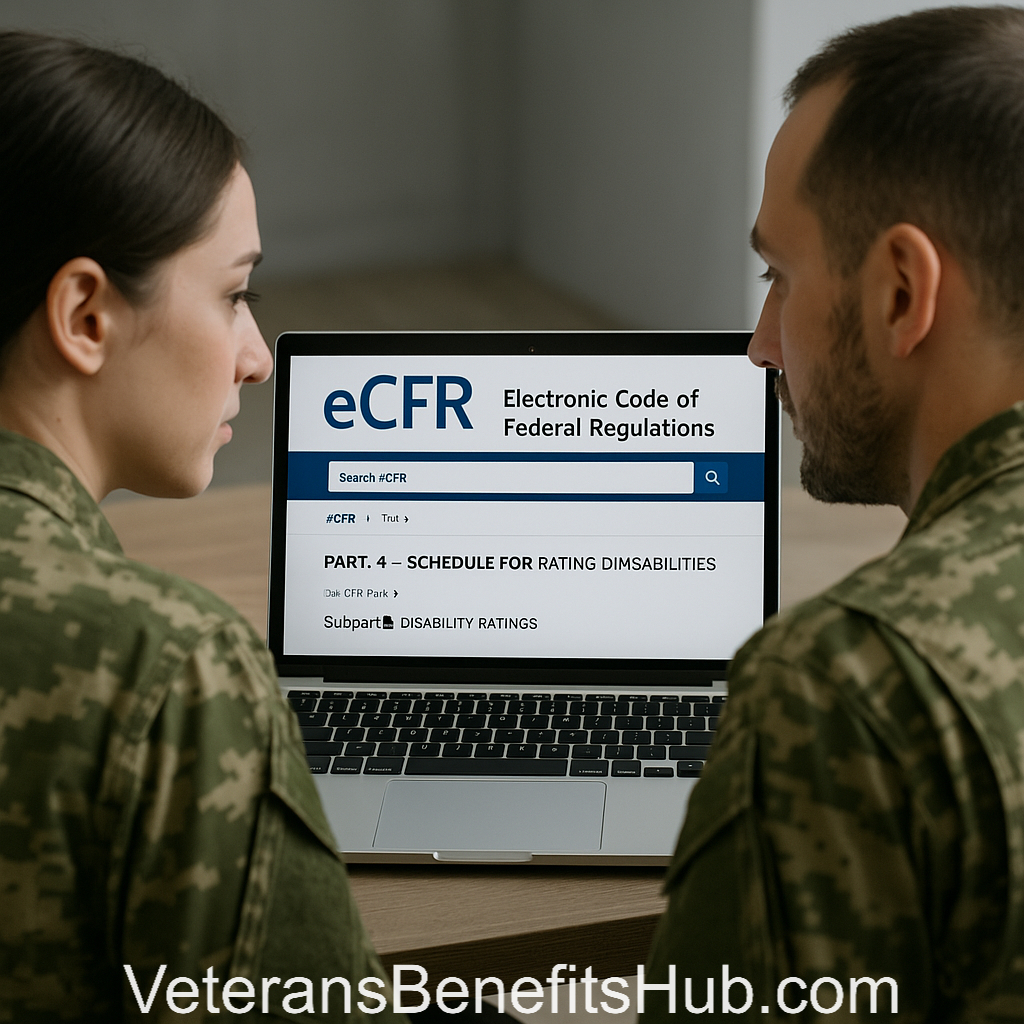
Navigating the VA disability claims process can feel overwhelming—especially when you’re diving into the fine details of diagnostic codes. Today, we’re focusing on three specific conditions: hypertension, tinnitus, and caffeine addiction. These topics are complex and often require digging into the federal code, so we’ll give you a quick overview to get you started on the right path.
VA Diagnostic Code for Hypertension
The VA diagnostic code for hypertension is 7101.
To verify this, we searched various reliable sources, including legal blogs like CCK Law and educational resources like Cornell’s eCFR site. While these are useful for guidance, it’s always best to confirm the current rating criteria directly from the Electronic Code of Federal Regulations (eCFR).
According to the 38 CFR § 4.104, diagnostic code 7101 covers hypertension. Be aware that these codes can be updated, so always check the most recent version of the eCFR. As of the time of writing, the information is current through August 24.
Keep in mind, even if the condition has a diagnostic code, you still need:
-
A medical diagnosis
-
Supporting medical evidence
-
A nexus showing the connection to your military service
VA Diagnostic Code for Tinnitus
For tinnitus, the diagnostic code is 6260.
This is a well-established code under the VA’s schedule for rating disabilities related to the ear. It typically receives a 10% rating for recurrent tinnitus, which is the highest schedular rating for this condition.
You can verify this on official government sites like va.gov, federalregister.gov, or through the eCFR. Just search for “6260 tinnitus” to locate the relevant section.
Important Note on Tinnitus Claims:
-
Tinnitus is subjective. There is no definitive test to prove you do or do not have it.
-
Your personal statement is critical. Clearly describe when the tinnitus started—ideally during active duty—and how it affects you today.
-
Always include a personal statement with every claim. It’s your chance to explain your condition in plain language.
Caffeine Addiction and VA Claims
Caffeine addiction is a bit of a wild card. While it’s a topic of increasing medical interest, it’s not currently recognized with a specific diagnostic code by the VA. That doesn’t mean it’s impossible to get support, but it would likely need to be filed as a secondary condition (for example, if it exacerbates an anxiety disorder or sleep condition).
If you believe caffeine use is impacting your health in a service-connected way, speak with a VA-accredited representative or attorney to explore your options.
Final Thoughts
Each of these conditions is its own rabbit hole, and the more you dig, the more you’ll learn. The most important steps are:
-
Verify the diagnostic code.
-
Gather medical records.
-
Connect the condition to your service.
-
Submit a strong personal statement.
Taking time to understand the diagnostic codes and how the VA evaluates each condition can significantly strengthen your claim.
⚠️ Disclaimer:
The information provided in this article is for general informational purposes only and is not legal advice. VeteransBenefitsHub.com is not affiliated with the U.S. Department of Veterans Affairs. Always consult with a VA-accredited representative or attorney for help with your specific claim.
